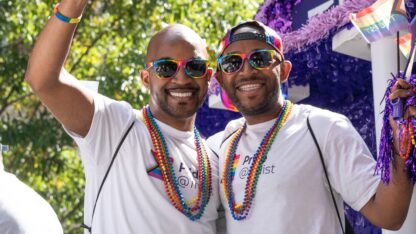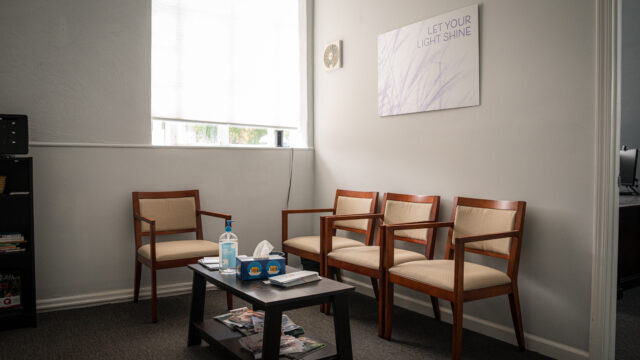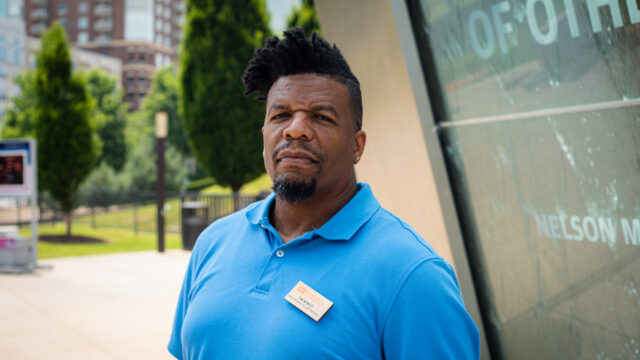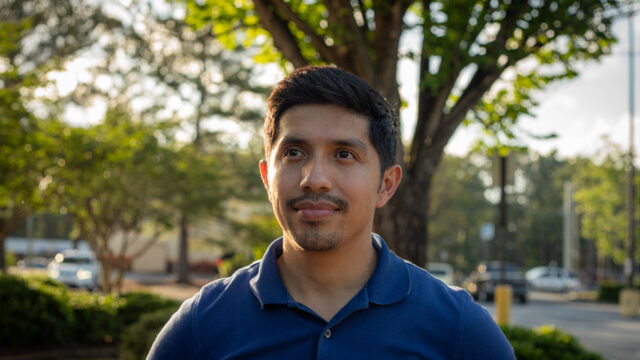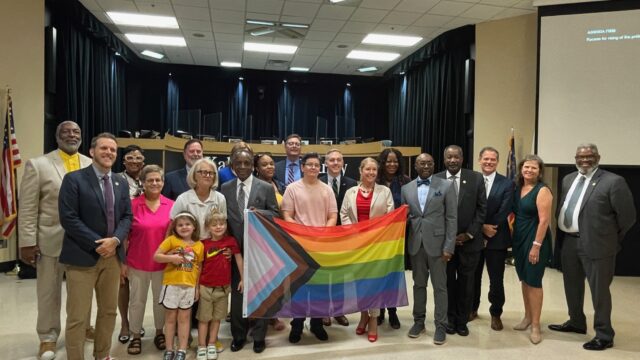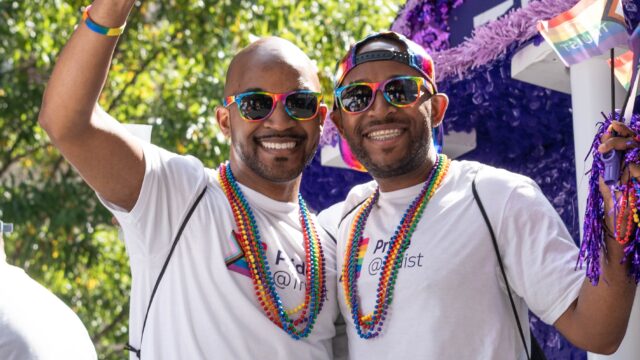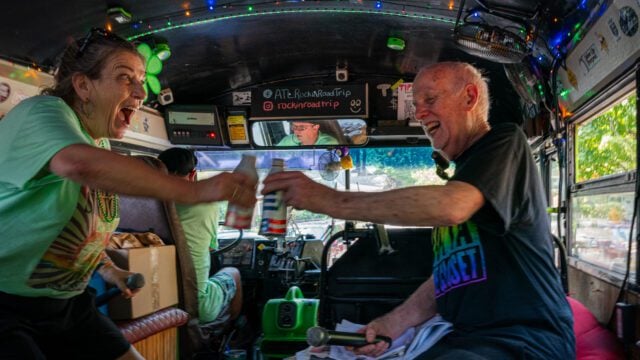The DeKalb County Board of Commissioners on Tuesday unanimously adopted a nondiscrimination ordinance, joining over a dozen other local governments who’ve adopted such measures in the last five years.
The ordinance bars discrimination in public accommodations and against county employees. Violators of the ordinance can face anywhere from a fine to the loss of an alcohol or business license.
“Fighting for equality is not a singular event for one group. It’s a collective action that spans decades of work by thousands of people,” said state Rep. Karla Drenner during public comment at Tuesday’s commission meeting. “Today we are witnessing one of those moments.”
Drenner, who is the chair of the DeKalb delegation of the Georgia House of Representatives, became Georgia’s first openly LGBTQ member of the state legislature when she was elected over 20 years ago.
“We will not allow discrimination and hate and bigotry to define who we are as a county or as a government.”
DeKalb County CEO Michael Thurmond
Ordinances like DeKalb’s cover a number of classes including race, religion, national origin, age, sex and disability.
But the movement to adopt them in cities and counties across the state is largely driven by LGBTQ advocates due to a lack of such protections at the state and federal level, and an increasing number of anti-LGBTQ incidents and laws in recent years. The DeKalb ordinance provides protections against discrimination based on someone’s sexual orientation and gender identity.
“Times come along and put things on your agenda or before you to consider that you never thought you’d have to consider,” said DeKalb Commissioner Robert Patrick. “I certainly never wanted us to have to get to a point that we have to have [an ordinance] that says Americans be treated like Americans in America. But those are the times we’re in right now.”
Georgia municipalities with a broad nondiscrimination ordinance, including in public accommodations:
- Atlanta (2000)
- Athens-Clarke County (2021)
- Augusta-Richmond County (2021)
- Brookhaven (2020)
- Chamblee (2019)
- Clarkston (2019)
- Decatur
- DeKalb County (2023)
- Doraville (2018)
- Dunwoody (2019)
- East Point (2020)
- Hapeville (2020)
- Savannah (2020)
- Smyrna (2020)
- Statesboro (2020)
- Tucker (2023)
DeKalb becomes largest Georgia county with such protections
The DeKalb Commission passed a nondiscrimination ordinance in 2021, but county administrators sent it back to the commission for revisions including expanding the number of classes protected. This new ordinance now has the backing of the commission and the administration.
It forbids discriminating against someone in DeKalb based on their race, color, religion, national origin, sex, pregnancy, age, disability, genetic information, familial status, political affiliation, political opinion, sexual orientation, parental status, gender identity, marital status and protective hairstyles.
It applies to businesses open to the public as well as protects county employees and applicants for county jobs. Once a complaint is filed, it either goes to informal voluntary mediation between the alleged violator and victim, or it goes to a hearing officer. If the hearing officer finds that a violation occurred, they can impose a $500 penalty or recommend that the county suspend or revoke a business’s alcohol or business license.
DeKalb is by far the largest county in Georgia to adopt such an ordinance, with nearly 800,000 residents. Roughly half of those residents already had such protections on the city level, with Tucker being the latest to do so just last month.
Several other Georgia counties have ordinances that protect against discrimination for their employees, but only Richmond, Clarke and now DeKalb have ordinances that provide such protections in public accommodations. A public accommodation can be any government-owned facility like a post office, public pool or library, as well as privately owned businesses like retail stores, hotels and restaurants.
Georgia is one of only three states without a public accommodations law.
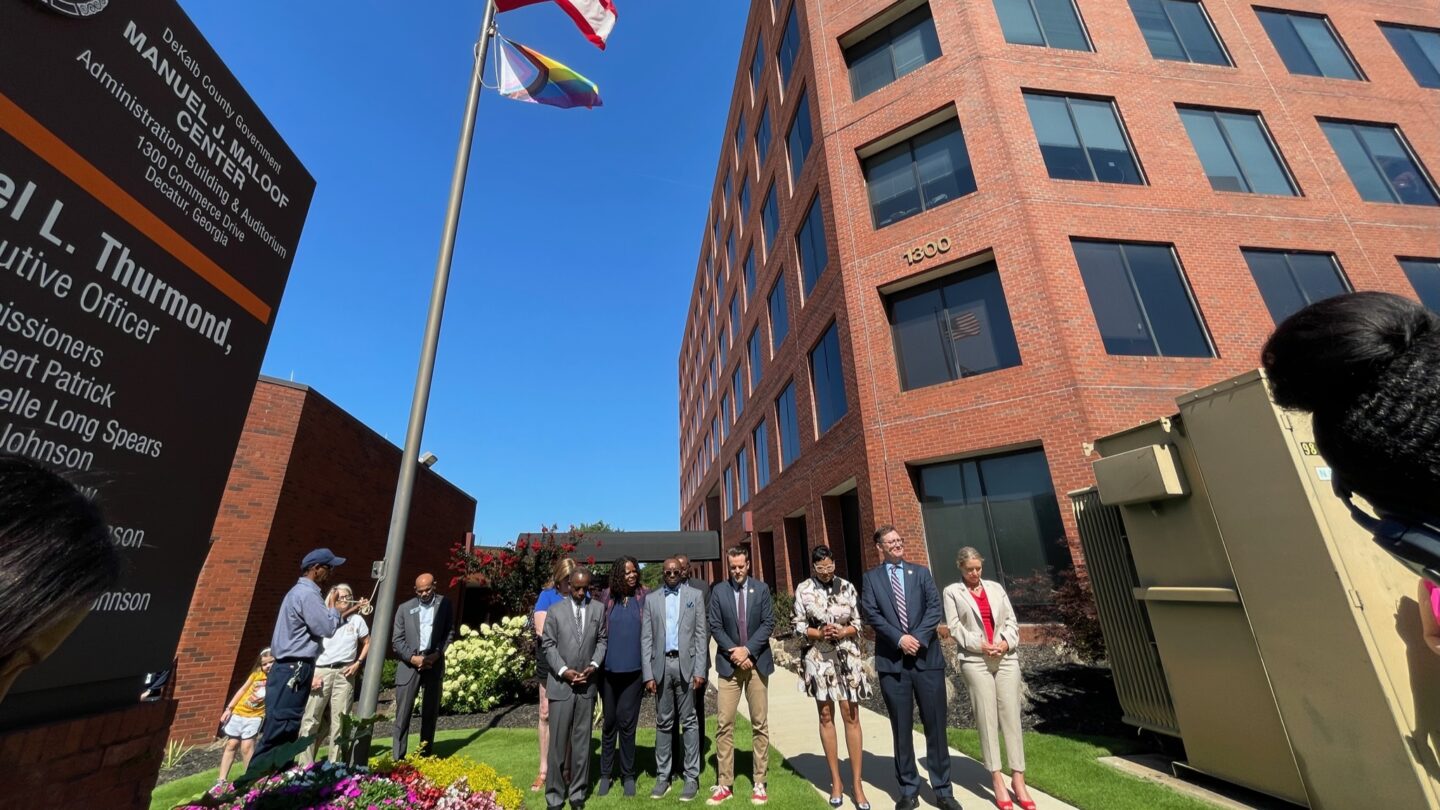
‘God Bless America’
Several people spoke in favor of the ordinance at Tuesday’s meeting. No one spoke out against it.
Georgia Equality Executive Director Jeff Graham thanked the commissioners and local advocates in a statement.
“We at Georgia Equality are proud to have been involved in this work with DeKalb County, and we look forward to working with the commission and administration in the future to continue adopting laws and policies that promote fairness, safety, and opportunity for members of DeKalb’s LGBTQ community,” he said.
DeKalb CEO Michael Thurmond called it a “very historic and necessary ordinance.”
“We will not allow discrimination and hate and bigotry to define who we are as a county or as a government,” he said.
Following the vote, the commissioners and other current and former elected officials and LGBTQ advocates gathered outside the Manuel J. Maloof Center to raise the Pride flag.
“God Bless America,” Thurmond said as the flag was raised.
The ordinance will go into effect in January. Commissioner Patrick asked the county to consider the recent U.S. Supreme Court decision on 303 Creative LLC v. Elenis to determine if any revisions need to be made to the ordinance before it goes into effect.
In that case, the court ruled last month that a Christian graphic artist who wants to design wedding websites can refuse to work with same-sex couples. Graham called it a “radical and reckless ruling” that opens the door for discrimination.
This story is part of the ongoing series Beyond Pride, in which WABE reporters take a deeper look at the issues affecting LGBTQ people in Georgia. Plus, hear LGBTQ Atlantans in their own words, check out a Pride events calendar running through the fall, LGBTQ coverage from other NPR stations across the South and more.

